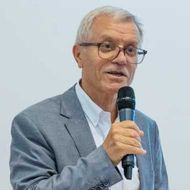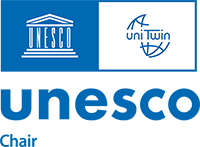- A
- A
- A
- ABC
- ABC
- ABC
- А
- А
- А
- А
- А
- HSE University
- UNESCO Chair on Future Studies
- News
- The 30th Anniversary of the UNESCO Chairs Programme Was Celebrated in Paris
-
-
Education
-
Science
11 Myasnitskaya St., Moscow
+7 (495) 621-28-73
issek@hse.ru
Meissner D., Zhou Y., Fischer B. et al.
Technological Forecasting and Social Change. 2022. Vol. 178.
Abdrakhmanova G., Vasilkovsky S., Vishnevskiy K. et al.
M.: National Research University Higher School of Economics, 2022.
Saritas O., Burmaoglu S., Ozdemir D.
Futures. 2022. Vol. 137.
Sokolov A., Shashnov S. A., Kotsemir M. N.
In bk.: BRICS Comprehensive Innovation Competitiveness Report 2020. Scientific and technical documentation press, 2021. P. 36-98.

The 30th Anniversary of the UNESCO Chairs Programme Was Celebrated in Paris

The UNITWIN programme (UNITWIN - University Education Twinning and Networking Scheme) was established in 1992 to promote inter-university cooperation in the main areas of UNESCO's activities. The new academic initiative aims to involve universities in developing and transition countries in the global interdisciplinary dialogue. The UNESCO Chairs Network is a platform for sharing information and knowledge in areas of UNESCO's responsibilities, conducting joint research, and facilitating teacher exchanges. Currently the network comprises 850 UNITWIN/UNESCO Chairs in over 110 countries. It’s a unique resource for academic and research cooperation at the national, regional, and international levels.
The anniversary conference was hosted by UNESCO with the support of the French National Commission for UNESCO.
The participants included heads of UNESCO Chairs, representatives of partner organisations, and experts from UNESCO and other UN agencies. The conference provided a platform for guests and hosts to engage into a dialogue, network, and establish partnerships.
During the plenary sessions and special workshops, ideas for advancing futures studies in the framework of priority UNESCO programmes were discussed, and initiatives on the further development of the UNITWIN/UNESCO Chairs network. Speakers noted the UNITWIN programme’s achievements over the past thirty years in endorsing the UNESCO goal and priorities: contributing to peace and security by promoting international cooperation in education, sciences, and culture.
According to the conference participants, UNESCO Chairs’ interdisciplinary focus helps address the following issues:
- developing and implementing new educational technologies;
- conducting research to promote the cooperation of science with industry and the service sector;
- strengthening links between knowledge, research, education and public policy;
- promoting close interaction with businesses to facilitate practical application of research results;
- forecasting innovation, and laying science and technology groundwork for the future.
The two-day event was held in the spirit of global scientific, ethical, scholarly, and academic solidarity. As Audrey Azoulay, UNESCO Director-General noted in her welcoming address, “the UNITWIN/UNESCO Chairs programme is now more relevant than ever, as the modern world continuously faces numerous social, economic, political, technological, and environmental challenges”.

Alexander Sokolov, Head of the HSE UNESCO Futures Studies Chair and Deputy Director of the HSE Institute for Statistical Studies and Economics of Knowledge, shared his impressions of the conference.
What would you say was the main value of this conference for you?
I was glad to personally meet heads of a number of relevant chairs from many countries. Due to the pandemic, over the past 2-3 years live contacts have been practically frozen, and for me this conference was the first opportunity to directly communicate with colleagues after the UNESCO Futures Studies Chair was established at the Higher School of Economics.
What aspects of the conference would you highlight in particular?
The conference was held to celebrate the 30th anniversary of the UNITWIN/UNESCO Chairs Programme, so it brought together over 500 participants from all continents. The hosts invited to speak heads of various UN departments (e.g. Future Labs), and representatives of specific UNESCO Chairs. There was an opportunity to discuss various aspects of these chairs’ work, while the conference’s focus on the future set the tone for discussions on various topics relevant for the foresight methodology.
What is the benefit for the UNESCO Futures Studies Chair of taking part in such events?
Being a part of such forums is very important for our chair, because it allows to better feel the trends in socio-economic development, see new important research areas, and discuss our results with colleagues from various countries. It is important that UNESCO sees people, the development of human capital in the broadest sense, as its ultimate priority. This is very much in tune with the focus of our World-Class Human Capital Multidisciplinary Research Centre, where people’s future is one of the main research topics. I believe the Centre’s research results would find a favourable response at UNESCO forums.
What new ideas and projects suggested by the conference participants seemed most interesting to you?
The UNESCO Futures Literacy team suggested to regularly hold meetings where not only each chair would present their work, but one team would present the work of another. I think this approach would help dive into colleagues’ topics deeper, and find common areas of interest for future research.
We have established live contacts with colleagues from many countries, and already discussed the prospects for arranging joint foresight trainings, conducting joint research, and producing a special issue of the Foresight and STI Governance journal. We also agreed to hold joint events in 2023 with a number of colleagues, e.g. in February in Turkey, in April in Moscow, and in May in Austria.
- About
- About
- Key Figures & Facts
- Sustainability at HSE University
- Faculties & Departments
- International Partnerships
- Faculty & Staff
- HSE Buildings
- Public Enquiries
- Studies
- Admissions
- Programme Catalogue
- Undergraduate
- Graduate
- Exchange Programmes
- Summer Schools
- Semester in Moscow
- Business Internship
-
https://elearning.hse.ru/en/mooc/
Massive Open Online Courses
-
https://www.hse.ru/en/visual/
HSE Site for the Visually Impaired
-
http://5top100.com/
Russian Academic Excellence Project 5-100
- © HSE University 1993–2025 Contacts Copyright Privacy Policy Site Map
- Edit
